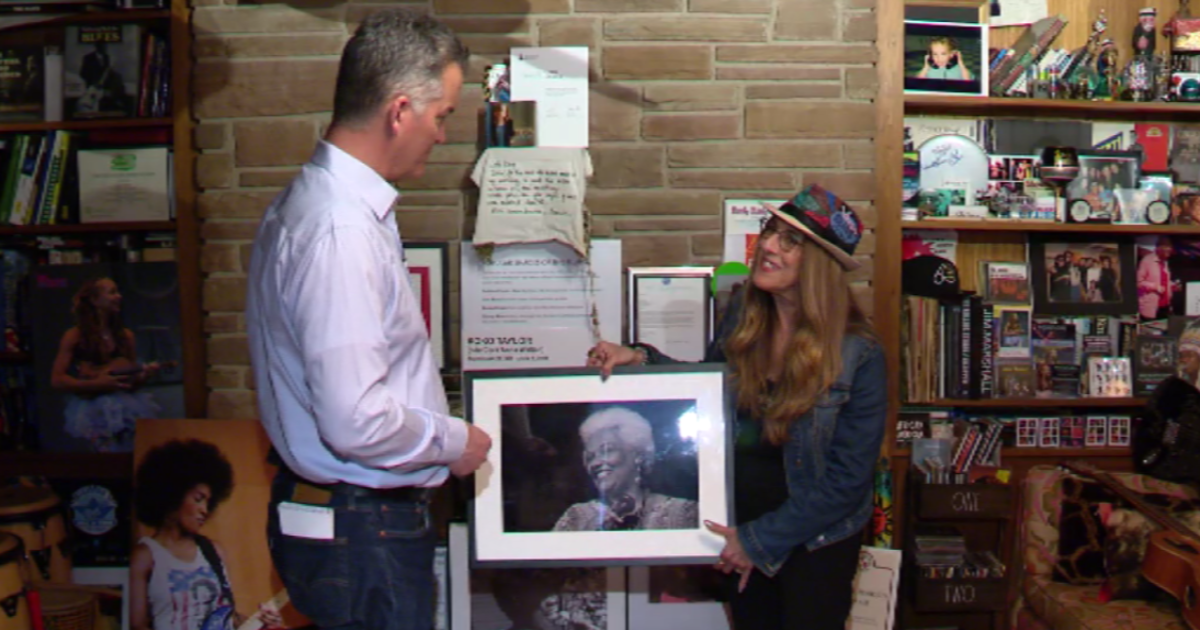Movement Among Black Women To Wear Their Hair Natural Makes For Business Success Stories For Some Chicago Women
CHICAGO (CBS) -- We kick off Black History Month at CBS 2 Tuesday night with the story of three Chicago women who are trailblazers in the natural hair movement.
As CBS 2's Dorothy Tucker reported, the women took their journeys and turned them into big business – commanding a piece of the multibillion-dollar industry.
"Very few Black people knew what their hair texture looked like from a child," said Kim Lewis, chief executive officer of CurlMix. "Many of us were relaxed from like, almost out of the womb."
"As a little girl growing up, I thought 'pretty' was having my hair straight," said Dominque Deverreaux, co-owner of Natural Strandz. "That's what they would show, like, you know, on TV."
However, the process to get to "pretty" - treating the hair with harsh chemicals known as perms or relaxers — can be a painful one for Black women – including Lewis.
"I started to develop alopecia from relaxing my hair so much," Lewis said.
"The scalp burns, around the edges - I personally would never do it again," said Aris Singleton, finance and HR manager at TGIN.
The late Chris-Tia Donaldson summed up a growing rage among Black women in corporate America.
"When I graduated from Harvard Law School, I faced a major dilemma," Donaldson said in a past TGIN video.
In her autobiography, The lawyer-turned-author wrote: "In my mind, braids, faux-locks, and crochet hairstyles were out of the question. My only option back then was to wear a wig. I regrettably conceded to white comfort and reached an unspoken, unfair compromise with myself."
Eventually, Donaldson stopped compromising and took a bold step, and quit her corporate job.
"I created TGIN, or Thank God It's Natural," Donaldson said in the past interview, "because I wanted to be comfortable in wearing my curls."
Three months ago, Donaldson died from breast cancer. But the multimillion-dollar company she started operates from a warehouse in the Fulton Market District - shipping products around the world.
Lewis went natural in college. Frustration also spurred the Morgan Park High School grad and Roseland native to make a bold move.
"I was mixing my hair products in my dorm room. That's when I had my husband do my big chop sophomore year in my dorm room. He took some kiddy scissors and just cut off all my hair - and it was like this low, and he left me like kind of bald on one side," Lewis said. "But it's all right. I love him."
The husband-and-wife team turned the products into profits - and did something many young entrepreneurs only dream of. They made it to "Shark Tank."
They also did something on "Shark Tank" that most contestants would never do. They turned down an offer for $400,000 from an investor, Robert Herjavec, who would have bought a stake in the company.
"We are worth more than this, and Robert said he didn't know anything about the industry, but he'll write us a check. And like, that's not enough, you know," Lewis said. "We can find money. We need someone who going to help us be a partner in this thing and help blow it up."
And blow it up they did. They turned to crowdfunding and raised millions.
Today, they have two brands – CurlMix and 4C ONLY – and they make all of their products in Fulton Market.
TGIN, CurlMix, and Mielle Organics are all Chicago area companies that are part of the movement devoted to natural hair, and how to wash it and style it. It has helped fuel the billion-dollar hair care industry.
But one Chicago company, the 65-year-old South Side legend Luster Products, was completely caught off guard by the natural hair movement.
"I didn't see it coming," said Luster Products President Jory Luster. "We didn't see it coming."
Luster Products was known as the king of relaxers, and was forced to pivot to stay in the game.
Luster: "It was a dark period. You know, we were scrambling."
Tucker: "What did you do to be able to survive?"
Luster: "What we began to do IS as we learned things, we applied them."
Today, the company produces more than a dozen natural hair care products – including conditioners and shampoos. And they're a worthy competitor.
"I am tickled to be a part of what's going on," Luster said.
Deverreaux pivoted by choice. The co-owner of the Natural Strandz in Bridgeport — who chooses to wear her straight every now and then —
says most of her clients are natural.
"Today's Black woman is just very unapologetically Black - you know what I mean?" Deverreaux said. "Just accepts everything about their hair; the culture."
That acceptance took time. And for Lewis, there's no turning back.
"I will be natural until the day I die," she said.



